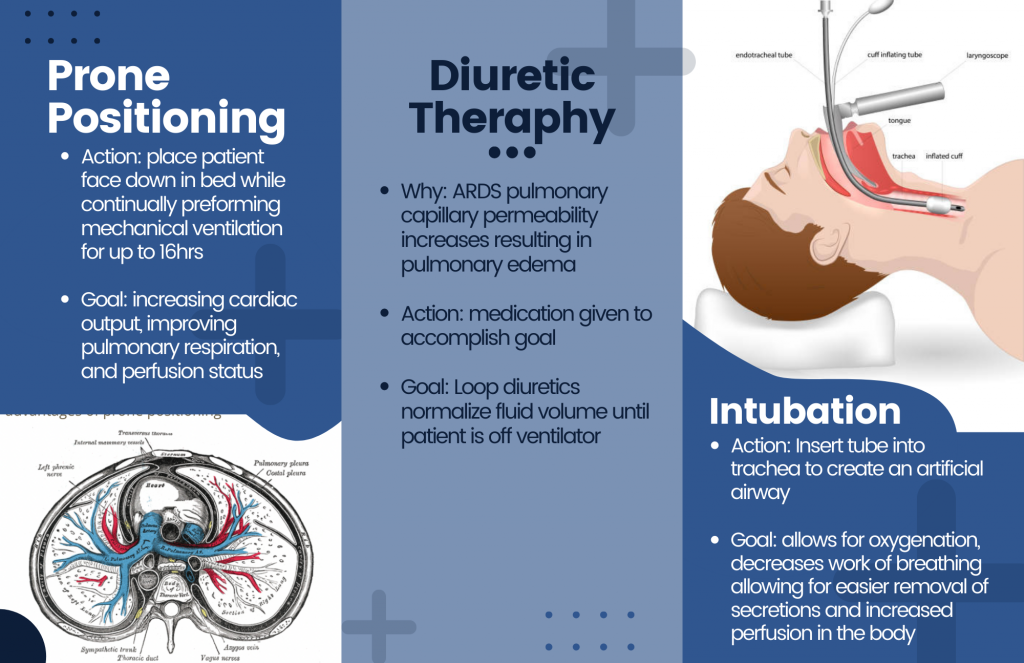This class was taken in the spring semester of my Junior year and it has to be my FAVORITE CLASS of all time! I loved it so much that I decided to enhance this nursing class to receive an honors credit for the completion of this class.
During this course, we learned everything we need to know about how to care for complex patient conditions. Conditions like Acute Respiratory Distress Syndrome, severe burns, neurological disorders, cardiac arrests, opioid overdose, and so many more students are responsible for learning. Simply understanding what is happening in the body is not good enough in this class. This class takes it a step forward and forces students to apply their knowledge to predict potential life saving interventions that will need to be performed, but students are also responsible for learning advanced techniques that are used to respond to these medical emergencies.
Students participated in advanced skills labs, clinicals within different ICUs, and lectures depicting the exact pathophysiology that the patient is exhibiting with each condition. This class was my favorite simply because EVERYTHING IS CONNECTED! Once one understands the basic functionings of the body, why the body responds in certain ways, and how the body achieves each goal, it makes understanding the complex pathophysiology much easier to respond to. It becomes less of reacting to a medical emergency and truly responding with intention.
For the enhancement project for this class, my partner and I decided to research the effectiveness of Intensive Respiratory Care of COVID patients. In this project we discussed different methods that have been studied and proven to increase the prognosis of COVID patients, and we decided to break down the pathophysiology of why they were successful. We discussed interventions like proning (positioning the patient face-down in the bed), intubation (inserting a tube into the trachea to increase ventilation), and diuretic therapy (administering medications that force the body to urinate excess fluid). Along with interventions used, we decided to discuss different communication and non-pharmacological techniques that have been proven to improve the conditions of COVID patients. Utilizing techniques like communication boards (boards with pictures and letters to help the nonverbal patient communicate), biofeedback (the teaching of conscious control over the body’s unconscious processes), music and guided imagery therapies).

This class made me feel the most like a nurse and inspired me to become an ICU nurse! After one rotation within the ICU clinical, I was hooked and I knew I wanted to help people in that way. Helping people in their most critical condition and bringing life back into them is such a rewarding feeling that I want to have and the career I want to live in.
